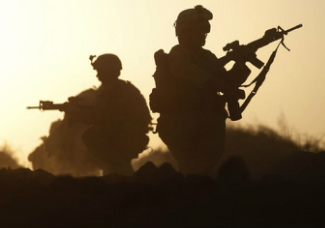At the Women’s International League for Peace and Freedom seminar in March 2010, Cynthia Cockburn presented a talk on the links between war and masculinity, which prompted greatly in writing my dissertation on “Women in Diplomacy”. I found that too often, peace organisations react to women’s experiences as victims and survivors of war but very little on the revelation on how women act as active peace-makers especially from positions of political power.
 The seminar entitled “Militarism, Masculinity, and Men” prompted conversation on how gender is relevant in analysing the theory of war, violence and aggression. While causes of war include capitalism, neoliberal capitalism, corporate power, and nationalism, the seminar identified patriarchy as a defining factor to the make-up of war. Cockburn described patriarchy as “the gender order in which we live, the system through which men gain massively by subordinating women”. Considering that women have gained the right to break their silence only 100 years ago, it is not farfetched to blame patriarchy for creating discriminatory social systems that favours of masculinised ideals. Patriarchy has shaped predisposed ideas of society, the need to sustain the military, and justifying causes to go to war.
The seminar entitled “Militarism, Masculinity, and Men” prompted conversation on how gender is relevant in analysing the theory of war, violence and aggression. While causes of war include capitalism, neoliberal capitalism, corporate power, and nationalism, the seminar identified patriarchy as a defining factor to the make-up of war. Cockburn described patriarchy as “the gender order in which we live, the system through which men gain massively by subordinating women”. Considering that women have gained the right to break their silence only 100 years ago, it is not farfetched to blame patriarchy for creating discriminatory social systems that favours of masculinised ideals. Patriarchy has shaped predisposed ideas of society, the need to sustain the military, and justifying causes to go to war. Think about what is happening in the Democratic Republic of Congo (DRC). Just a few days ago, Britain showed a TV documentary on Channel 4 about how the DRC is the most dangerous place for women, because women become tools of sexual violence as a means to intimidate the opposing party. Patriarchy survives and functions because women on the whole accept its values and play into men’s power. Think about the West’s obsessions about plastic surgery and body image as women’s ability to aesthetically please men. In the UK, the House of Lords was named in reflection to power belonging to men – the Lords, not the Ladies. In Japan, the geisha women dedicate their life to entertaining men. In Uganda, a portly woman is seen as a status symbol for men. In Morocco, women are forced to take lowly jobs that men refuse to do whilst also expected to look after family members. Why don’t we speak out more clearly that patriarchal gender power relations, especially men and masculine cultures, are implicated in militarism, militarisation, and war? Because it is a tricky subject! Patriarchy is embedded so deeply within societies that it is difficult to unravel, unless we visualise gender as set of forces, values and, expectations that we have to negotiate with.
To be a female soldier is not the same as being a male soldier, though men do pay a heavy price serving their country in times of war. Female soldiers have difficulty getting promotion, and are frequently harassed and raped by male colleagues and senior officers. Women are rarely in positions of power and are constantly operating in a male-dominant infrastructure. The overall gender order of the world we live in is made up of organisations and institutions each of which has its gender regime. Given the concentration of weapons and the practices of violence among men, gender patterns appear to be strategic. Masculinities are the forms in which many dynamics of violence take shape, and this must be identified as a strategy towards peace and security. Therefore, we must not take for granted the position gender has in revealing the ingredients and make-up of society, but use it as a force to understand and analyse how men and women together can create a more equal and peaceful world.


















